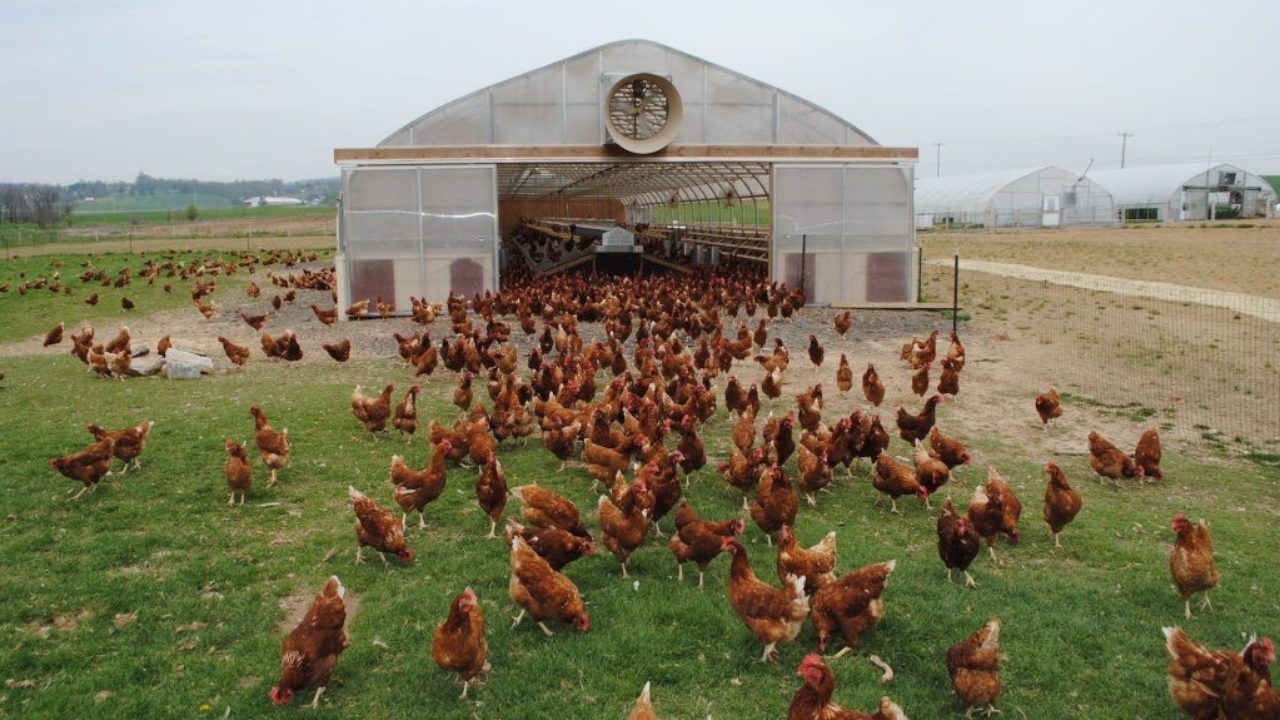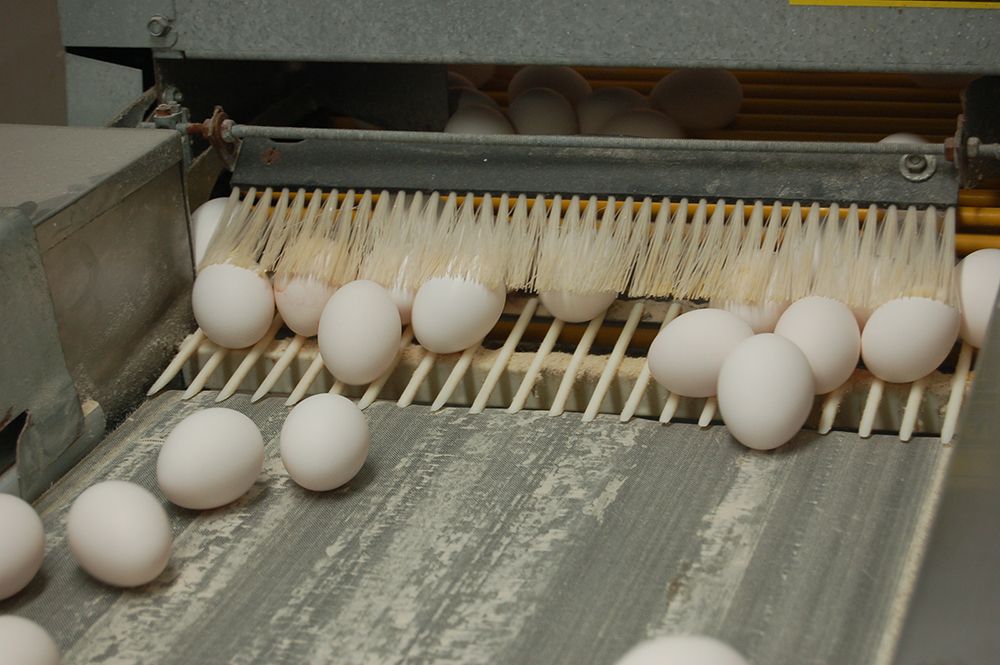The Difference Between Pasture-Raised Eggs and Factory-Farmed Eggs
Key Take-aways from this Story
Pasture-Raised Eggs: A Better Life for the Bird and the Buyer
Pasture-raised eggs are produced by hens that spend the majority of their time outdoors. These birds are given access to open pastures where they can roam freely, forage for natural foods like insects and grasses, and enjoy sunlight, fresh air, and movement. Each hen typically gets at least 108 square feet of space—enough to walk, flap wings, dust bathe, and behave as nature intended.
Their diet is more diverse and nutrient-rich, which directly improves the quality of the eggs they lay. This kind of environment not only boosts the health of the hens but also enhances the flavor, color, and nutritional profile of the eggs. Consumers are increasingly drawn to pasture-raised eggs because they represent a return to traditional farming values—where animal welfare, sustainability, and food quality are at the center of the process.
Factory-Farmed Eggs: Efficient but Cruel and Compromised
In stark contrast, factory-farmed eggs come from hens raised in industrialized environments designed for mass production and minimal cost. The majority of these birds are confined to battery cages, each hen allotted a space smaller than a sheet of paper. They cannot move freely, spread their wings, or engage in basic behaviors like nesting or perching. The air is often poor, the light is artificial, and the stress levels are extreme.
These hens are fed standardized grain-based feed, and because of their high-stress environment, they're frequently given antibiotics to suppress disease outbreaks caused by overcrowding. The eggs produced in these facilities are cheaper, but that low price masks the immense toll paid in terms of animal cruelty, diminished nutritional value, and environmental degradation. Consumers buying factory-farmed eggs are often unaware of the suffering built into every dozen.
Nutrition Isn’t Equal: Quality Starts with Diet and Living Conditions

Pasture-raised eggs are not only superior in terms of how the hens are treated—they’re also scientifically proven to be better for your health. Multiple nutritional analyses show that pasture-raised eggs contain significantly more omega-3 fatty acids, which are vital for brain and heart health. They also deliver higher levels of vitamin D, vitamin E, and beta carotene—antioxidants that support immunity and cellular function.
This nutritional boost is a direct result of the hens’ more diverse, natural diets and less stressful environments. On the other hand, factory-farmed eggs often lack these nutritional advantages because the hens are fed a monotonous diet of processed grains and live in confined, unnatural settings. These eggs typically contain more cholesterol and unhealthy fats, offering fewer health benefits per bite.
Appearance and Taste: You Can See and Taste the Difference
The differences between pasture-raised and factory-farmed eggs go beyond labels—they're obvious the moment you crack them open. Pasture-raised eggs usually have deep orange yolks, a sign of their higher nutrient content and natural carotenoids. The whites are thicker, and the yolks hold their shape better during cooking.
They taste richer, creamier, and more savory, especially when used in dishes where eggs are the centerpiece, such as omelets, soft-boiled eggs, or even simple fried eggs. In contrast, factory-farmed eggs often have pale, watery yolks and thin, runny whites. Their flavor is bland, sometimes even metallic, and lacks the natural richness of a well-raised egg. These physical and sensory differences stem directly from how the hens live and what they eat.
Animal Welfare Is the Core Issue

At the heart of the difference is how each system treats animals. Pasture-raised farming gives hens a life where they can move freely, interact with their environment, and express instinctive behaviors. They are not mutilated or overexploited, and farmers operating under certified pasture-raised standards are regularly inspected to ensure compliance.
In contrast, factory farming treats hens as production units. Beak trimming is common to prevent aggression in overcrowded cages. Injuries, feather loss, and early death are rampant. These birds never see daylight, touch grass, or experience a moment of natural living. If ethics and humane treatment matter to you—even a little—then factory-farmed eggs are not a justifiable option. Every dollar spent on them reinforces an inhumane system.
Environmental Consequences Are Hard to Ignore
The environmental impact of egg production is another key distinction. Factory farms generate massive amounts of waste, which often ends up polluting soil and waterways. These operations are high in energy consumption and contribute to greenhouse gas emissions due to their centralized, high-output design. The overuse of antibiotics also leads to resistant bacteria strains that pose risks to both human and animal health.
In contrast, pasture-based farms use the chickens as part of a natural ecosystem. Their manure enriches the soil instead of becoming toxic runoff, and their foraging reduces the need for synthetic pesticides. These farms can be carbon-neutral or even carbon-negative when managed with regenerative principles. Choosing pasture-raised eggs is also a vote for cleaner air, water, and a more sustainable food chain.
Why Pasture-Raised Eggs Cost More—and Why That’s Justified

Yes, pasture-raised eggs cost more at the grocery store—but the reasons are valid. They require more space, more labor, and slower, more attentive farming practices. You're not just paying for a dozen eggs; you're supporting a better food system. The higher cost reflects the ethical treatment of animals, healthier production methods, and a richer, more nutritious product.
In contrast, factory-farmed eggs are artificially cheap because they cut corners in every possible way—from confining animals to skipping proper waste management and maximizing volume at the expense of health and decency. When you buy pasture-raised, you're not just buying better eggs—you're buying peace of mind and food integrity.
What Your Choice Says About You
Every time you choose between pasture-raised and factory-farmed eggs, you’re making a statement about what you support. It's not just a question of breakfast—it's a decision about animal rights, environmental care, and personal health. Pasture-raised eggs represent a more humane, responsible, and nutritious approach to food production. Choosing them, even occasionally, pushes the industry in a better direction. As more consumers become aware of the realities behind the labels, demand for ethically produced eggs is rising. You have the power to accelerate that change.
Conclusion: Choose Better Eggs, Choose a Better System
The difference between pasture-raised and factory-farmed eggs is not subtle—it’s fundamental. From the conditions of the hens to the nutrients in your breakfast, every aspect is shaped by how those eggs were produced. Pasture-raised eggs offer better health, stronger ethics, and lower environmental harm. Factory-farmed eggs, though cheaper, come with hidden costs that extend far beyond the price tag. If you care about food quality, animal welfare, or the planet, the better choice is clear—and it starts with your next carton.





0 comments